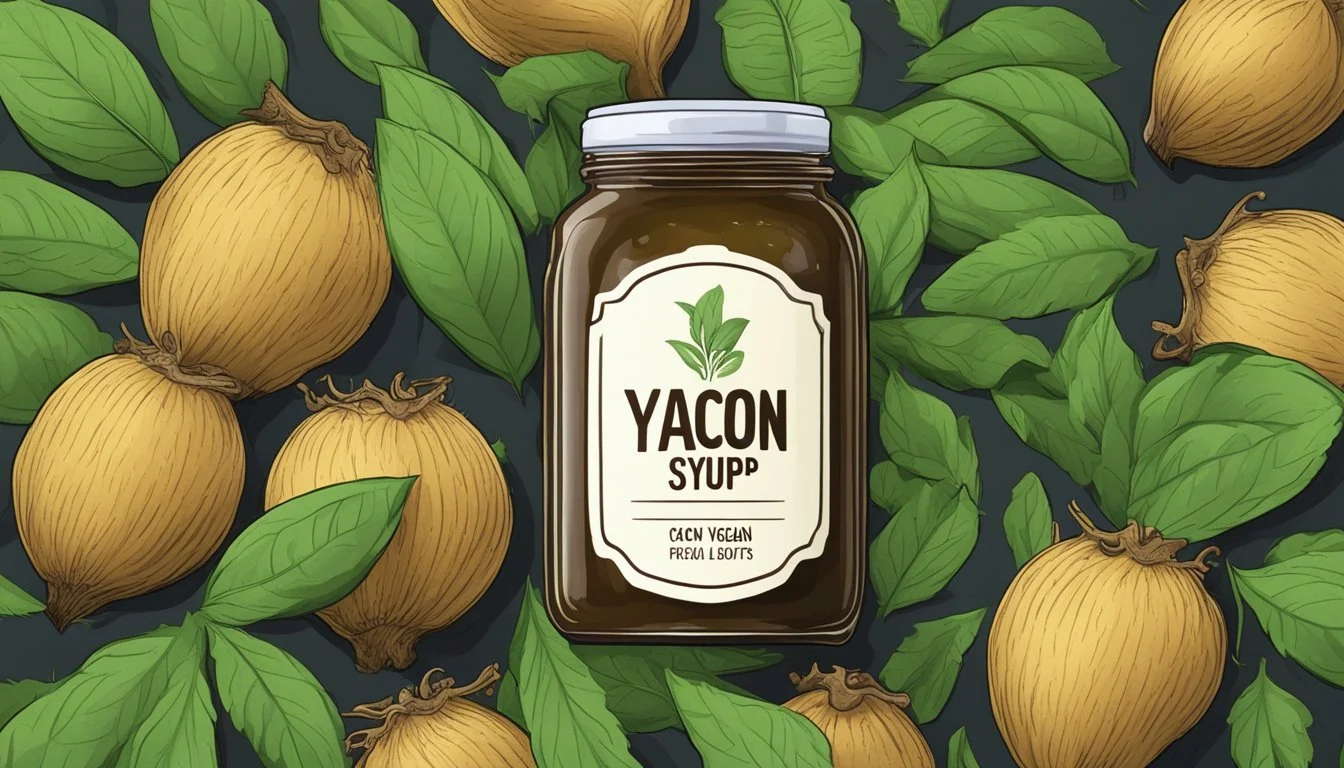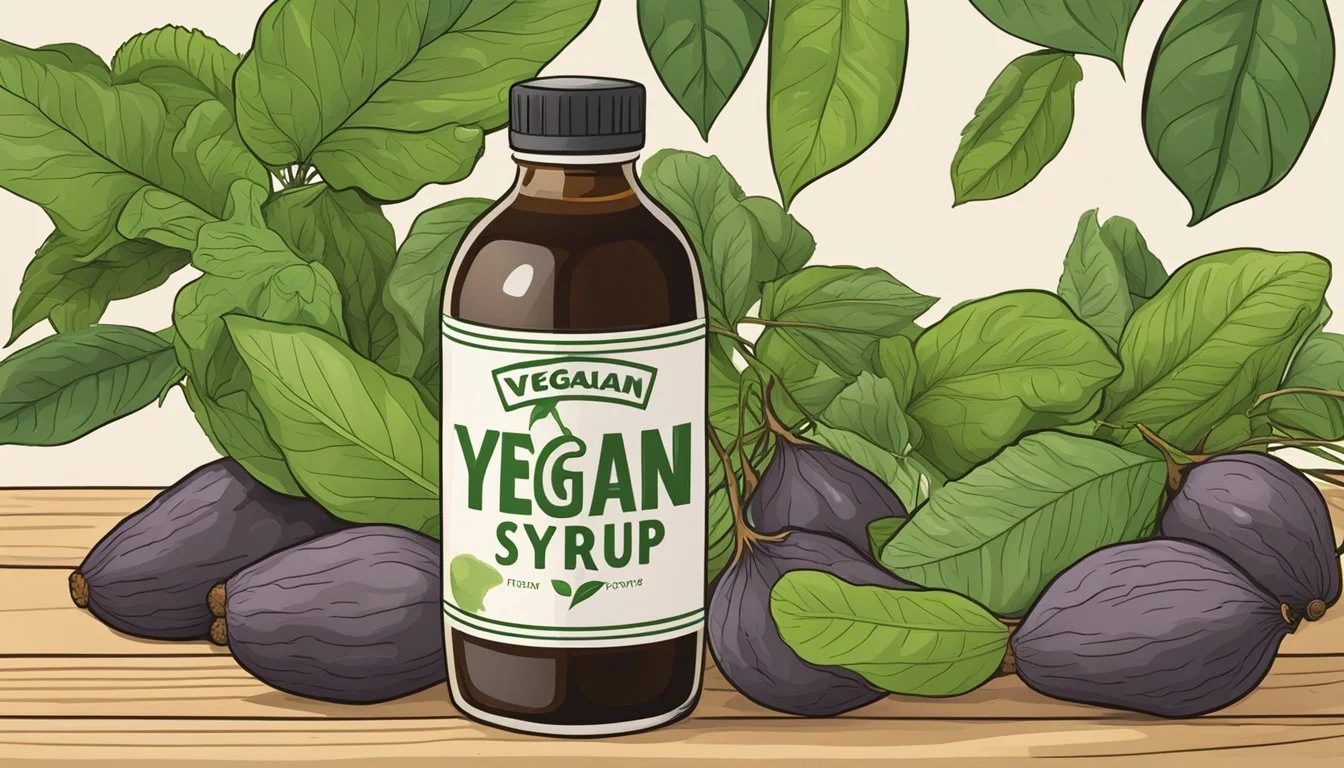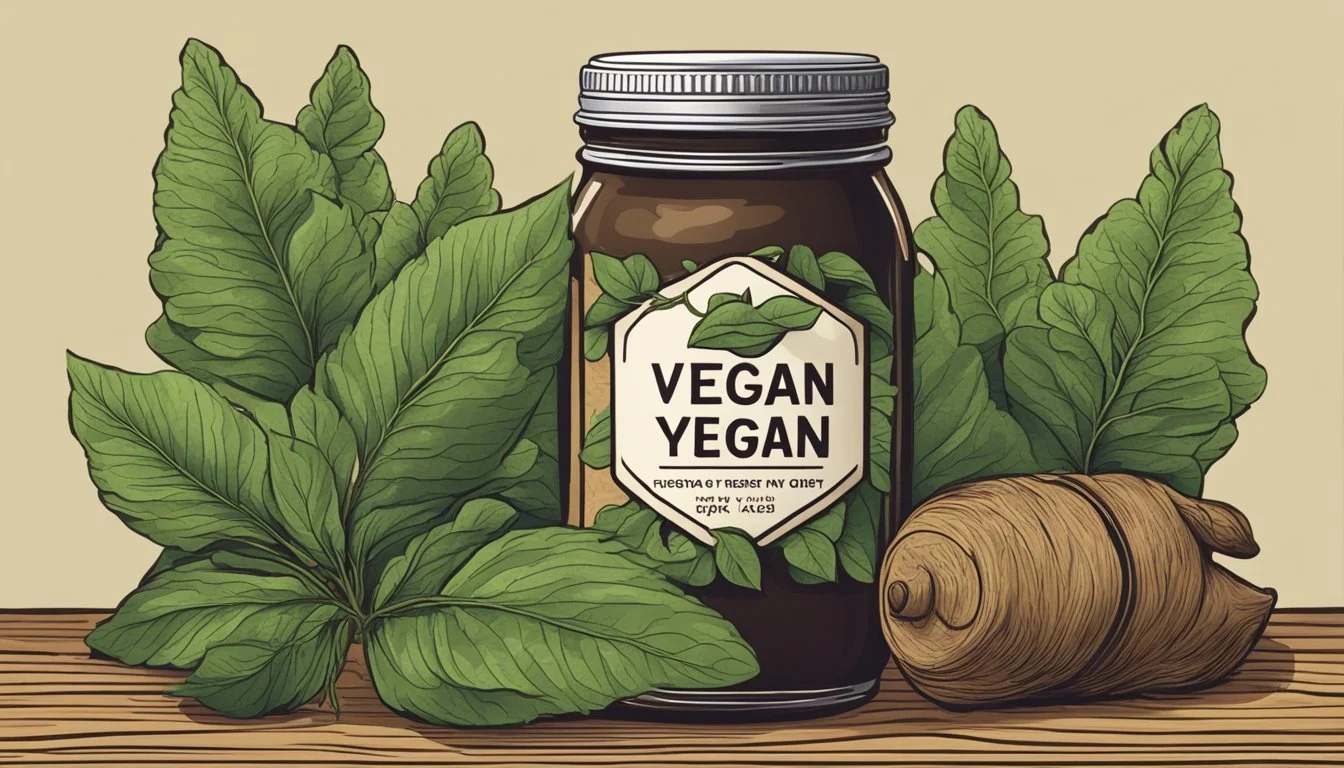Is Yacon Syrup Vegan?
Unveiling the Sweet Truth
Yacon syrup is an emerging natural sweetener extracted from the tuberous roots of the yacon plant, primarily found in the Andean region of South America. It offers a lower calorie alternative to traditional sweeteners like white sugar and has a unique profile that includes fructooligosaccharides, which act as prebiotics to support digestive health. Notably, its production process does not involve any animal products or byproducts, making it a suitable option for those adhering to a vegan lifestyle.
The vegan community often seeks plant-based alternatives to common sweeteners, and yacon syrup fits this niche perfectly. It is 100% raw and organic, devoid of any components that conflict with vegan principles. Unlike white sugar that can be processed with bone char, yacon syrup retains its vegan-friendly status through all stages of its manufacturing. Thus, individuals following a vegan diet can incorporate yacon syrup into their regimen as a sweetening agent without any concern for compromising their dietary restrictions.
What is Yacon Syrup?
Yacon syrup is a natural sweetener extracted from the yacon plant, praised for its low calorie content and high concentration of prebiotic fibers.
Origin and Cultivation
The yacon plant (Smallanthus sonchifolius) is indigenous to South America, particularly growing in the Andes Mountains. It has been a staple in the diet of local populations in countries like Peru for centuries. The cultivation involves growing the yacon plant primarily for its tuberous roots, which are the source of the syrup.
Nutritional Profile
Yacon syrup is known for its nutritional benefits, particularly due to the presence of fructooligosaccharides (FOS) and inulin, types of prebiotic fibers. These components contribute to the syrup's low glycemic index, making it a suitable sweetener for those looking to manage calorie intake.
Nutrient Value Calories Low Carbohydrate High; mainly from fructans Fiber High; inulin and FOS Fructooligosaccharides Present Inulin Present Antioxidants Contains antioxidants Minerals Potassium, Calcium, Phosphorus
The syrup retains a unique nutritional profile with essential minerals like potassium, calcium, and phosphorus, contributing to its overall nutritional value among natural sweeteners.
Yacon Syrup and Veganism
In the context of dietary choices, yacon syrup emerges as a sweetener that aligns well with vegan principles due to its plant-based origins.
Definition and Vegan Status
Yacon syrup is a natural sweetener extracted from the roots of the yacon plant (Smallanthus sonchifolius). It’s known for its prebiotic properties which support digestive health. For individuals adhering to a vegan lifestyle, it is important to ascertain the vegan status of this sweetener.
Vegan: A lifestyle that avoids the use of animal products.
Vegan-Friendly: Products that do not involve animal products or byproducts in their production.
Given that yacon syrup is derived from a plant and the extraction process does not utilize animal products, it can be considered both vegan and vegan-friendly. It serves as a plant-based alternative to sweeteners like honey, which are not vegan due to their animal origins.
Health Aspects of Yacon Syrup
Yacon syrup, a natural sweetener extracted from the yacon plant, has gained popularity due to its beneficial effects on digestive health, weight management, and blood sugar regulation, courtesy of its high fructooligosaccharide content.
Benefits for Digestive Health
Yacon syrup's rich prebiotic properties stem from its significant fructooligosaccharides (FOS) content. These sugars resist digestion, reaching the colon where they foster the growth of good bacteria. Regular consumption of yacon syrup can thus support gut microbiome health, potentially alleviating constipation and reducing inflammation in the digestive tract.
Nutritional Profile of FOS in Yacon Syrup:
Acts as a food source for beneficial gut bacteria
May reduce intestinal inflammation
Weight Management
Yacon syrup is advocated as a weight loss aid due to its low calorie count and ability to promote satiety. Research hints that it may influence body weight positively. It assists in weight control by reducing the appetite and improving body mass index (BMI) when included as part of a balanced diet.
Impact on Weight Control:
Low-calorie sweetener alternative
May enhance satiety and reduce appetite
Blood Sugar Regulation
One of the celebrated health benefits of yacon syrup is its potential to help regulate blood sugar levels. Its low glycemic index means it doesn't cause sharp increases in blood glucose, which makes it a suitable sweetener for individuals with diabetes or those aiming to prevent insulin resistance.
Blood Sugar Management with Yacon Syrup:
Low glycemic index reduces blood glucose spikes
May improve serum insulin levels for diabetics
Comparing Yacon to Other Sweeteners
Yacon syrup is gaining attention as a natural sweetener in the world of nutrition, particularly among vegan and health-conscious consumers. Comparisons with other sweeteners focus on nutritional value, calorie content, and flavor profile, as well as considerations of natural versus synthetic origins.
Nutrition and Calorie Content
Yacon syrup is derived from the root of the Yacon plant and is a source of fructooligosaccharides, which have a lower caloric value than sugars like glucose and fructose. Table 1 outlines the caloric comparison with other common sweeteners per tablespoon:
Sweetener Calories per tablespoon Notable Nutrients Yacon Syrup 20 Prebiotics, potassium White Sugar 48 - Honey 60+ Antioxidants (varies by type of honey) Maple Syrup 52 Manganese, zinc Molasses 58 Iron, calcium, magnesium Stevia 0 (no calories) No significant nutrients Monk Fruit 0 (no calories) Mogrosides (antioxidants) Artificial 0 (no calories) -
Tasting Notes
Yacon syrup is valued for its unique flavor, which is often described as a cross between caramel and molasses with a mildly sweet taste. It is less sweet than honey or maple syrup and does not have the bitterness associated with some natural sweeteners like stevia or monk fruit.
Yacon Syrup: Caramel-like, less sweet, minimal aftertaste
White Sugar: Pure sweetness, no other distinct flavors
Honey: Floral notes depending on the variety, very sweet
Maple Syrup: Woody and rich, with a strong unique flavor
Molasses: Deep and robust, bittersweet
Stevia: Very sweet with potential bitter aftertaste
Monk Fruit: Sweet with no calories, may have a fruity aftertaste
Artificial Sweeteners: Sweetness varies, potential for chemical aftertaste
Natural vs. Synthetic
Yacon syrup is a natural sweetener and is considered minimally processed. It has the advantage of being plant-based and not chemically altered unlike artificial sweeteners. Its counterparts, such as stevia and monk fruit, also originate from plants but can undergo more processing. Meanwhile, refined sugars, such as white sugar, are heavily processed. Artificial sweeteners are synthetic and provide sweetness without calories, but some are scrutinized for their long-term health effects.
Practical Uses in Food
Yacon syrup serves as a versatile ingredient in the kitchen, especially valued for its vegan-friendly profile and its application in various cooking and baking processes.
Culinary Uses of Yacon Syrup
In the realm of baking, yacon syrup can replace traditional sweeteners. It is particularly useful in recipes requiring a mild sweetness, as it imparts a flavor similar to caramel or molasses. Chefs may utilize yacon syrup in cookies, cakes, and even breads where a subtle sweet touch is desired.
When it comes to cooking, yacon syrup's properties lend themselves to a range of culinary practices. It can serve as a dressing ingredient for salads, adding a hint of sweetness to balance acidic notes. Moreover, yacon syrup can be drizzled over roasted vegetables like carrots and sweet potatoes, enhancing their natural flavors.
One key aspect to remember is that yacon syrup should be added at the end of the cooking process or used in cold preparations. This is due to the fact that excessive heat can break down its structure and reduce the beneficial properties it may contain.
Yacon Syrup in Various Diets
Yacon syrup is a natural sweetener that's derived from the root of the yacon plant. It's recognized for its nutritious properties and compatibility with various dietary plans due to its composition and low glycemic impact.
Compatibility with Diet Plans
Vegan Diet: Yacon syrup is completely plant-based, which makes it suitable for those following a vegan lifestyle. As it does not involve any animal products or by-products, it aligns with the ethical and dietary restrictions of veganism.
Ketogenic Diet: Although yacon syrup contains natural sugars and carbohydrates, it is high in fructooligosaccharides, which are not absorbed the same way as regular sugar. This could potentially make it keto-friendly, but one should be mindful of the portion size to maintain a state of ketosis due to its carb content.
Paleo Diet: Supporters of a paleo diet often look for natural sweeteners as alternatives to refined sugars. Yacon syrup, a sweetener with prebiotic properties and high in dietary fiber, can fit within the parameters of the paleo diet due to its unprocessed nature and whole-food origin.
Whole30 Program: The Whole30 program typically excludes all sweeteners, whether natural or artificial. However, some may consider Yacon syrup as an exception for post-program use due to its nutritional profile, although it is not officially permitted during the strict 30-day period.
In summary, yacon syrup serves as a versatile sweetener that can complement various dietary preferences, particularly vegan and paleo diets. Its incorporation into specific diet plans like keto or Whole30 should be approached with careful consideration to align with those diets' strict rules regarding sugars and carbohydrates.
Sustainability and Environmental Impact
When considering the environmental implications of food production, yacon syrup presents a compelling case for sustainability. It demonstrates a lower environmental impact when compared to other sweeteners, which makes it increasingly appealing in the context of ecological consciousness.
Yacon Production and Ecology
Location: Yacon is predominantly cultivated in Peru and other regions of South America, leveraging the naturally suitable climatic conditions of the Andean region.
Water Usage: In terms of sustainability, yacon has been highlighted for its lower water requirements. Compared to traditional cash crops, yacon plants are often grown with less irrigation. This can lead to notable water conservation in agricultural practices.
Land Use: The cultivation of yacon does not typically demand extensive land usage changes, implying a reduced environmental impact when compared to crops that necessitate significant deforestation or land conversion.
Cultivation Practices: The sustainable farming practices adopted in the regions where yacon is grown contribute to the maintenance of ecological balance and help curb detrimental environmental consequences.
By favouring a crop that thrives with minimal intervention, yacon syrup production helps maintain the integrity of ecosystems in South America. These factors manifest why yacon syrup aligns closely with environmentally conscious food choices.
Consumer Considerations
When considering whether to incorporate yacon syrup into a vegan diet, consumers are advised to evaluate factors such as cost, availability, and potential allergens. These aspects are vital in making an informed decision that aligns with individual health needs and ethical choices.
Price and Accessibility
Yacon syrup is often viewed as a specialty item, and its price reflects this. It may be more expensive than traditional sweeteners due to its production process and the niche market it serves. In terms of accessibility, yacon syrup is not always found in standard grocery stores. Health food stores and online retailers are more likely to carry it, but this might pose a challenge for regular sourcing.
Price range: Potentially higher than conventional sweeteners
Accessibility: May require purchase from specialized stores or online
Allergens and Sensitivity
Yacon syrup generally does not contain common allergens, making it a suitable sweetener for individuals with allergies. However, those with a sensitivity to fructooligosaccharides (FOS), a primary component of yacon syrup, should exercise caution. As yacon syrup is high in FOS, it can cause digestive discomfort in sensitive individuals. Always consult nutritional profiles and, if necessary, a healthcare provider before adding new items to one's diet.
Common allergens: Typically absent in yacon syrup
FOS sensitivity: Can cause digestive discomfort for some individuals
Potential Side Effects and Precautions
When considering yacon syrup as a dietary addition, one should be aware of its possible side effects, particularly on digestive health. While it is often well-tolerated, some people may experience discomfort, primarily due to its high fructooligosaccharides (FOS) content.
Digestive Discomfort
Yacon syrup contains FOS, a type of carbohydrate that the human digestive system cannot fully digest. As a result, FOS can lead to:
Gas production and bloating: The fermentation of FOS by gut bacteria can cause an increase in gas, leading to feelings of bloating and discomfort.
Changes in bowel movements: In some individuals, yacon syrup may alter regularity or stool consistency.
Precautions to consider:
Slow introduction: Begin with small amounts of yacon syrup in the diet to allow the gut time to adjust.
Monitor for symptoms: If digestive symptoms occur, reduce intake or discontinue use.
Consult healthcare providers: People with IBS or other digestive disorders should speak with a healthcare provider before incorporating yacon syrup into their regimen to ensure it is appropriate for their condition.
It is advisable to consider these potential side effects and take appropriate precautions to maintain digestive health when using yacon syrup.
Conclusion
Yacon syrup is confirmed as a natural sweetener that sits well within vegan dietary practices. It provides a range of health benefits while aligning with vegan principles.
Summary and Verdict
Yacon syrup, derived from the juice of yacon tubers, is indeed a vegan product. The syrup is considered a health-conscious alternative to traditional sweeteners, given its low glycemic index and prebiotic nature. Health benefits associated with yacon syrup include aiding in digestion and potentially helping with blood sugar management due to its fructooligosaccharides (FOS) content.
In summary, yacon syrup can be confidently included in a vegan's diet and offers a beneficial profile, both nutritionally and ethically. Its verdict as a natural sweetener is affirmative, contributing a sweet flavor with fewer calories and supportive digestive properties in comparison to regular sugar.











